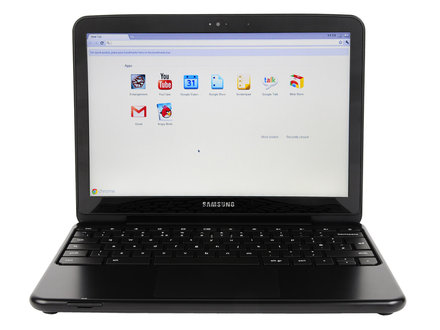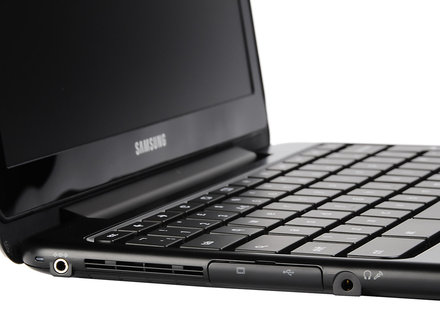Samsung are just about to release the first laptop powered by Google’s Chrome OS operating system. This is an operating system that removes the common desktop, start menu and file system and replaces it with a browser based experience. Unfortunately due to this the Chrome OS is far from perfect and it may be a struggle to convince some users to take a leap of faith in the baby OS.
The series 5 itself is well built and packs an Intel Atom N570 1.66GHz dual-core processor, 2GB of RAM and a beautifully clear screen. It also boasts a startup time of less than 10 seconds which is appealing, but the price tag not so much – you can pick up a Wi-Fi only version for £350 on the 1st of July, and £400 for the 3G and Wi-Fi version on the 1st August.
So let’s have a look at the Chrome OS.
Straight away you will find that you are unable to install programs directly onto your Chromebook, so if you were looking at installing Adobe Photoshop, Windows Live Messenger or Microsoft Office, you’re out of luck. There are however equivalent apps available from the Chrome Webstore – these apps are downloaded to and run from within the browser.
The OS being cloud-based allows the relatively slow specifications of the device to perform some processor-heavy tasks such as video editing, due to remote servers doing all the work. All the Chromebook needs to do is keep the browser open.
Another advantage (or disadvantage, depending on how you look at it) of the cloud based Chrome OS is that no data or files are stored locally on a hard drive, they are all stored remotely. This gives less risk of viruses tampering with user data, and thanks to the low risk of virus attack the Series 5 has no antivirus software inbuilt. However, if you were to purchase a Wi-Fi only model and require access to your documents on the go, you wouldn’t be able to unless you hooked the Chromebook up to a Wi-Fi network somewhere.
Not storing files locally means you are completely dependent on using a server system that you have no control over yourself. With the recent hacks to the Playstation Network and almost every man and his dog, confidence of user info stored remotely is at an all time low.
Google says that the Chrome OS may actually get better over time, due to the fact that they will be able to constantly keep the OS updated because it is web-based. These improvements may even include better battery life, for example.
So there are plenty of reasons why a cloud-based OS is a good idea. However, there are more reasons why at the moment it isn’t the best option.
Certain Chrome Web Store apps can be synced to allow the user to use their Chromebook offline, however the most productive of these apps is Angry Birds, and although it brings hours of fun it isn’t the best if you need to type up a document you might as well be one of those pesky pigs from Angry Birds, because you’re not going to get far with that egg! Google is looking at bringing an offline mode to Google Docs but at the moment there is no time frame for how long this will take.
The device itself is beautifully built and combines middle range innards with top of the range looks. It has potential to steal some of the market share from Apple and Microsoft, however I do feel it may be punching a little above its weight and has a lot of work to do to convince people to switch to the Cloud.


